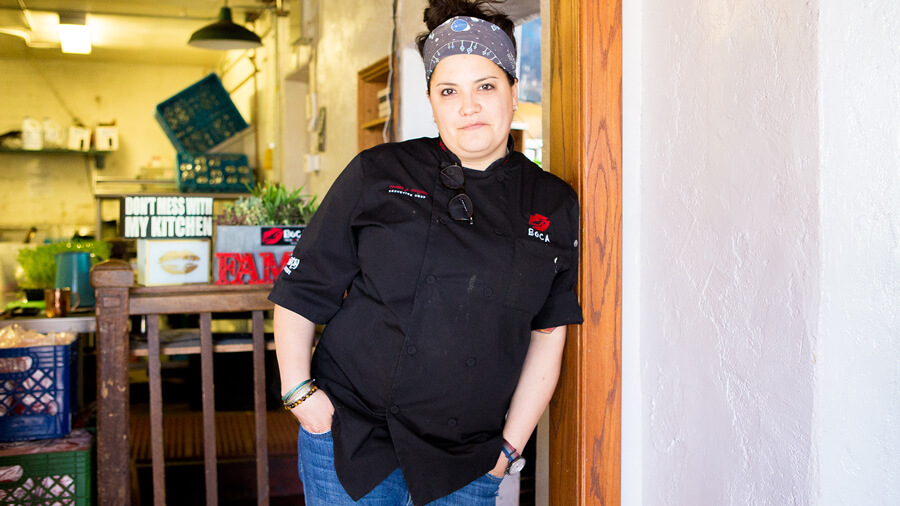
On a blistering hot June day in 2017, Maria Mazon surveyed the new home of Boca Tacos, the Mexican restaurant she opened in 2010. Mazon had only two weeks until the opening and there was still plenty of work to be done.
“I ran out of money after buying the new building and had to replace the air conditioning and the roof after we opened,” she says. “I couldn’t imagine what those Yelp reviews were going to look like.”
Mazon says the quick renovation process was “excruciating,” but she got it done with the help of her staff—who she endearingly refers to as her “kids”—and the Tucson Fire Department, who helped her figure out which repairs she would need to make. Despite the challenges, Mazon says that it reinforces her belief that she can never stop trying to make things better.
“If you’re content, then you’re never going to evolve,” she says. “I always tell myself that Saturday is going to be better than Friday.”
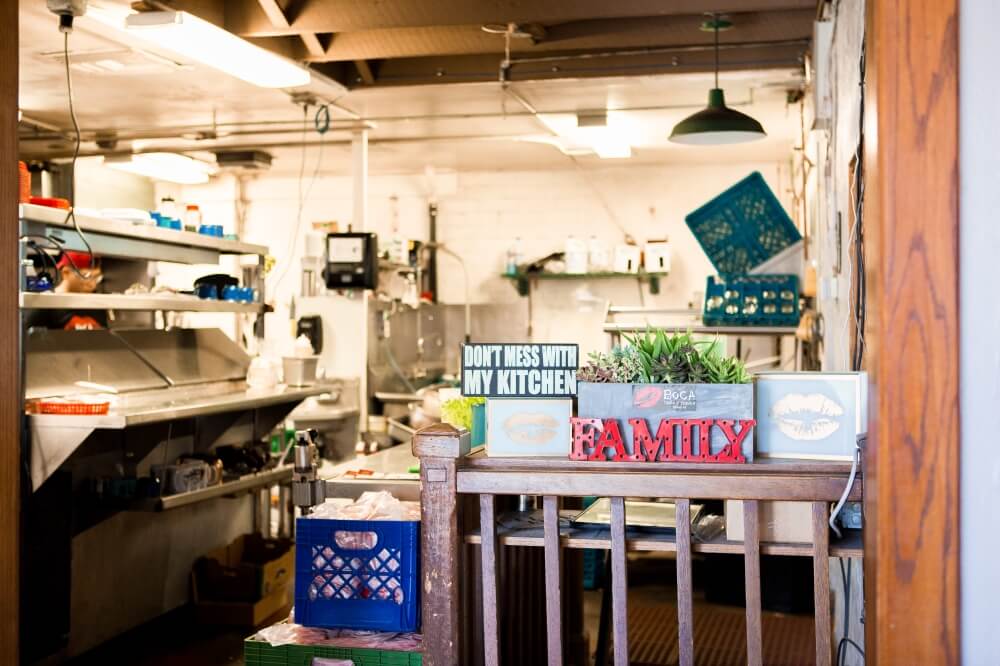
Change is never easy and, oftentimes, neither is growth. But Mazon has never been one to shy away from new opportunities. Her culinary journey began when she was given the chance to cook at Papagayo Cantina in the Foothills of Tucson, where she worked as a server. Mazon started cooking when she was a child growing up in Navojoa, Sonora, but her experience at Papagayo was the first time she was offered center stage.
Papagayo led to a rollercoaster of a decade that saw Mazon opening up her own catering company at age 22, then parlaying that into an opportunity to open the original Boca Tacos location on Speedway Boulevard with the help of her business partner.
The new, larger location on 4th Avenue came about when Mazon realized that the University of Arizona was buying up much of the property surrounding the restaurant. She put out feelers to find a new location and, finding herself desperate, almost committed to another spot on Speedway at one point—until opportunity rang. Mazon was told that Delectables on 4th Ave. was closing and the building was available. She jumped at the chance.
Since opening on 4th Ave., Boca Tacos has been busier than ever. Stop by on Exotic Taco Wednesday—when Mazon unveils her specialty tacos featuring meats like python, alligator, and kangaroo—and you’ll find a restaurant filled wall-to-wall with happy, hungry customers.

The Rise of Arizona’s Hispanic Businesses
Boca Tacos is just one example of the recent growth experienced by Hispanic-owned businesses in Arizona. As the U.S. economy steadily bounces back from the effects of the 2008 Great Recession, Hispanic business owners have been especially fortunate to see record business growth.
Market research firm Nielsen Scarborough found that Hispanic-owned businesses grew by 44% nationally— compared to the 15% growth by non-Hispanic businesses—over the past five years. In Arizona, this number was even higher. Hispanic-owned businesses in the state saw a 70% growth rate, while female Hispanic-owned businesses experienced a 116% growth rate from 2007 to 2015. Meanwhile, non-Hispanic businesses in Arizona grew by just 2% over the same period, according to the Arizona Hispanic Chamber of Commerce’s DATOS, a report on the state of Arizona’s Hispanic market.
James Garcia, Director of Communications and Public Policy at the Arizona Hispanic Chamber of Commerce (AHCC), credits the growth to a number of factors. The most obvious reason is the relatively high proportion of Arizona Hispanics—Garcia says Arizona’s Hispanic population tripled from 1990 to 2015.
But Garcia also pointed to a second reason for the tremendous rates of business growth. He says that the high school dropout rates of Hispanic students have fallen compared to those of non-Hispanic students, and that more Hispanics are graduating college. The National Center for Education Statistics reported a record high graduation rate (77.8%) among Arizona Hispanic students during the 2014/2015 school year. Garcia says that entrepreneurs tend to be more educated, and thus, these increased high school and college completion rates are likely a part of what has led to more businesses being created.
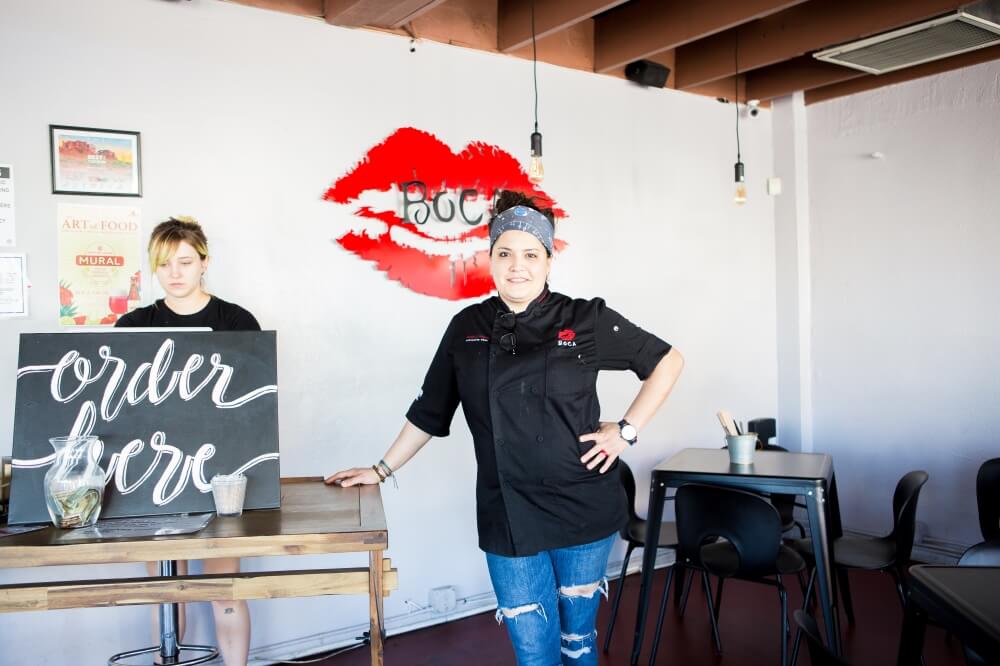
Hispanic women led the charge, according to DATOS, with high school graduation rates up 20% from 2010 to 2015, and female college graduates growing by 40% over the same period. Garcia says that more female Hispanic business owners ultimately means having more of a seat at the table when it comes to economic issues.
“These women serve as role models and encourage younger women to be leaders in the community,” he says. “The power of the purse now focuses on women-led businesses. As a result, we’re seeing a lot of female Hispanic business leaders who are now getting involved in politics.”
Hispanic Women on the Rise
Lisa Urias is one such individual. As the founder of Urias Communications and co-founder of CoNecs, Urias’ resume is only overshadowed by her to-do list.
Before founding her own agency, Urias spent 12 years in international marketing, working with corporate and governmental clients such as USAID. While she says the experience was “wonderful and exciting,” she grew tired of the endless travel required by the job. This was especially true after she had her second child.
Urias decided to strike out on her own and soon realized that her Hispanic heritage was a valuable asset for advising other marketing agencies.
“I looked around and woke up to the fact that there were a lot of general industry marketing agencies, but few that could address the rapidly emerging Hispanic market,” she says. “I was fortunate to have a strong reputation in the region, so I got a couple of corporate clients right off the bat.”
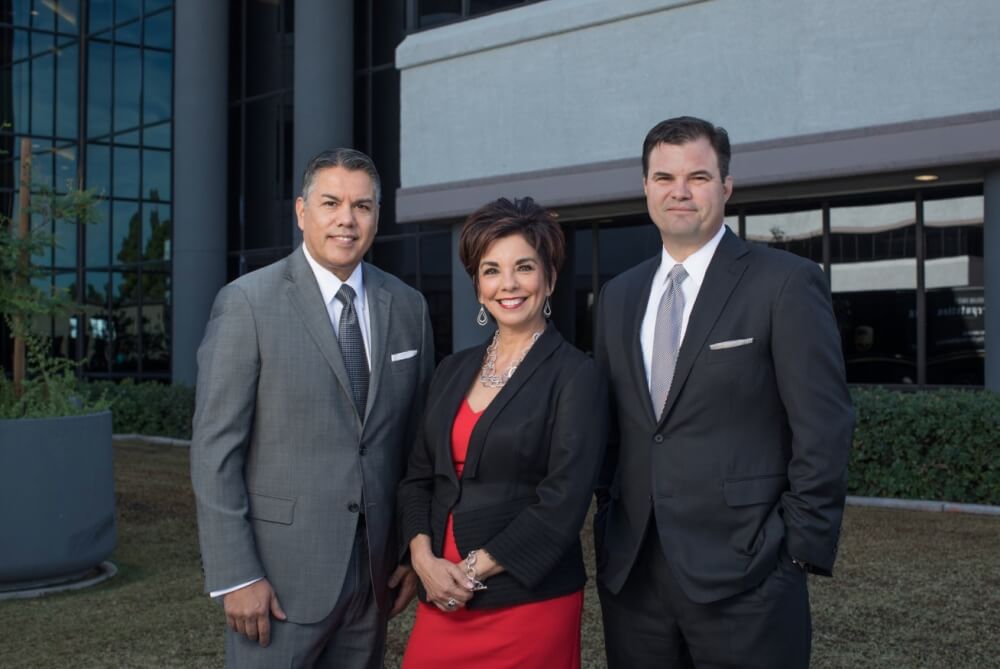
Less than a year ago, Urias partnered up with Jaime Molera and Ruben Alvarez, who ran a successful government affairs firm, and formed CoNecs, a firm that combines advertising, digital, and PR campaigns to connect businesses with government agencies.
While CoNecs began with only three employees, the team expanded to 16 over the past year. Urias says the growth is due to her firm’s first-hand knowledge of the Hispanic market. The firm is able to provide direction for businesses and government agencies aiming to engage with the Hispanic community, which she says was missing in the industry.
“These diverse markets in the U.S. are different, but you see the same old, white men running these agencies,” she says. “That’s why you see campaigns that shock people, like that infamous Pepsi ad [which featured Kendall Jenner bringing police and protestors together with a Pepsi]. It happens because no one knows whether it’s culturally relevant or offensive because there’s no diversity in the decision making.”
Beyond running CoNecs, Urias also serves on a number of community boards to further provide diversity in leadership. She says Hispanic participation is “important to help shape the direction of the state and the region, and to keep the Latino community at the forefront of decisions.”
Serving the community was also the catalyst for Mary Rabago, who served as an anchor at Univision for 15 years before starting her own media company, Mary Rabago Productions.
Rabago worked her way up from the bottom after immigrating from Sonora in 1990. She was taught hard work by her father, who “worked in the fields” of Mexico, and her mother, who took care of their 9 children.

Soon after arriving in the U.S., a desire to be on the radio led Rabago to the front door of a Phoenix-area station. After the station manager opened the door, she said, “My name is Mary Rabago and I want to be a DJ.” When asked what she knew about radio broadcasting, she replied, “Nothing, but I’m a fast learner.” Radio led to television, which led to an eventual career at Univision, where Rabago anchored for national shows such as Noticiero Univision and Primer Impacto.
After 20 years, Rabago decided to leave her comfortable position at Univision, saying she was “sick of seeing campaigns that targeted the Hispanic market that had nothing to do with our culture.” Rabago also saw some of the same social problems in her surrounding community that she witnessed as a child in Sonora, such as a lack of education and financial literacy.
This need to solve problems in her community led to Rabago establishing her own media agency under the slogan, “Journalism with a purpose.” But after leaving her steady job at Univision, Rabago found that running her own business was a different beast altogether. She says over the past five years, she’s made every mistake in the book, but still persevered.
“I didn’t know anything when I started out,” she says, “but I got a good lawyer, a good accountant, and I had my passion.”
Five years later, Mary Rabago Productions is doing better than ever. Her five-person staff runs a completely in-house marketing agency specializing in bilingual campaigns. Rabago was also one of the pioneers of streaming live via social media. Her show, Con Mary Rabago, began streaming on Facebook, Twitter, and YouTube back in 2013, well before the practice became standard. Rabago says that the show serves as her community service, since she’s able to “help the community learn about finance and how to participate more actively in the political process.”
The Mexican Connection
Mexico stands as an invaluable economic partner to the U.S. and especially so for Arizona. According to the U.S. Trade Administration, Mexican tourism contributes about $2.5 billion per year to the state’s economy and supports about 30,000 jobs. Mexico also accounts for nearly 37% of Arizona’s exports, with total trade reaching $15.7 billion in 2016 with 90,000 jobs supported by trade.
Mexico additionally serves as a key bridge for many small businesses trying to establish themselves in the U.S. Jose Dabdoub, who runs a Tucson-based real estate management and brokerage firm, has built his career on helping Mexican businesses gain a foothold in the U.S. market.
Dabdoub grew up in Nogales, Sonora, to a family of Palestinian immigrants. Being so close to the U.S. border, Dabdoub always had a familiarity with both worlds. After receiving his bachelor’s degree from the University of Arizona, he returned home to start a business, but due to persistent violence in the area, found himself back north in Nogales, Arizona, a binational town that depends on cooperation between the U.S. and Mexico.
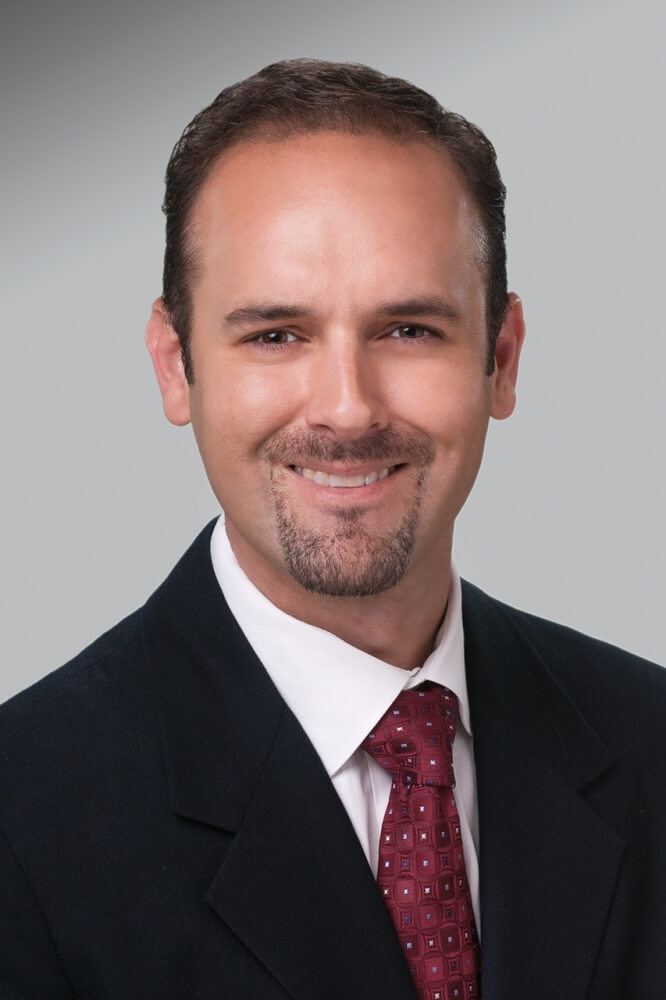
In Nogales, Dabdoub earned his real estate license and soon had a family friend asking him for help in relocating to the U.S. Due to his knowledge of both countries’ cultures, legal systems, and inspection codes, he was the perfect person for the job. He soon gained a reputation for being the bridge that helped Mexican businesses navigate the U.S.’s relatively complex systems. He says that many businesses in Mexico have a hard time understanding U.S. laws and regulations and often get discouraged from expanding across the border.
“The biggest challenge is educating these businesses, helping them understand a very different culture,” he says. “For example, the cost of labor is so different and health department and building codes are much more rigid.”
Dabdoub’s big score came when Hermosillo-based chain Suspiros Cakes came calling for help. Dabdoub says that Suspiros already had good infrastructure and an established brand. They sought out Dabdoub because he was bilingual and understood the U.S. market, which would allow them to make a smooth transition into the country.
Eight years later, Dabdoub Commercial now holds about $20 million in assets with over 90,000 square feet under his management. He says that his success came from being able to find a niche within the commercial real estate and brokerage industries.
Along with finding a niche, he also advises that those looking to start a business find a mentor. “A good mentor helps lay the groundwork for your future,” he says. “Once you’ve learned the ropes, then you can focus on exactly what area you want to pursue.”
In the meantime, Dabdoub says that he’s seeing overwhelming interest in Mexican businesses looking to invest in the U.S. He says that Tucson Mayor Jonathan Rothschild has done an excellent job of bridging gaps between Mexico and the U.S., and that he aims to continue helping to facilitate the cross-border relationship.
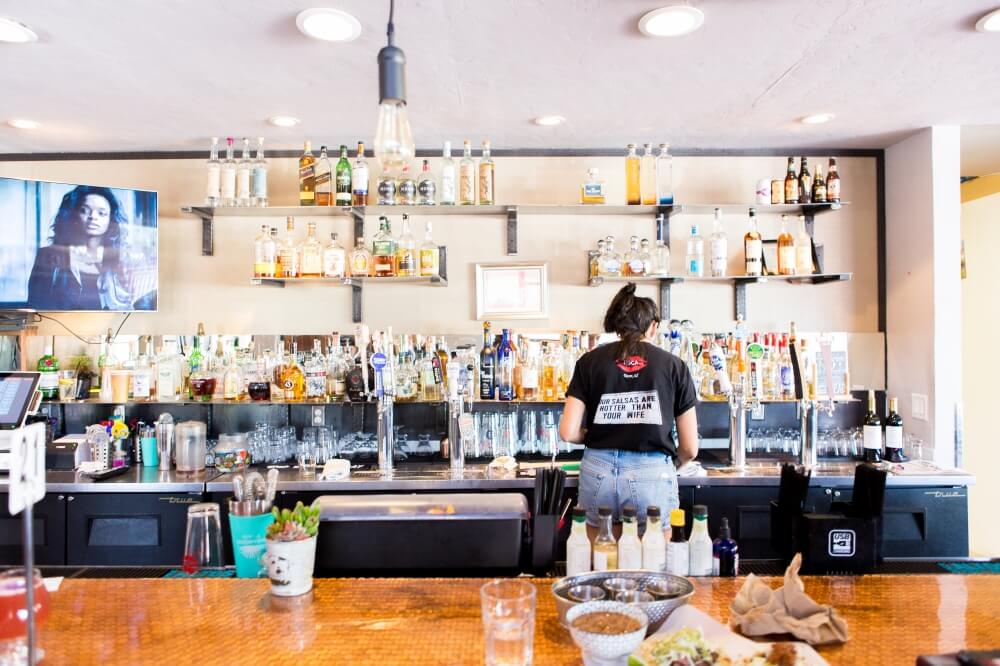
The Elements of Success
These individuals represent just a small sample of the growth experienced by Hispanic business owners in Arizona over the past few years. While each has a unique story, a number of common themes emerged in their journey toward success.
All of the featured Hispanic entrepreneurs emphasize the importance of finding a mentor, which included teachers, business partners, and family. Whomever that mentor might be, it’s essential to have someone to help guide you through the perilous experience of running your own business.
Another repeated theme was the value of community engagement. Each entrepreneur leveraged surrounding individuals and organizations to help them achieve their goals. These included groups such as the Hispanic Chamber of Commerce, Fuerza Local, Compass Career and Business Solutions, and the Pima County Office of Economic Development. Family and friends also often played an important role in their success.
Regardless of the path taken, these stories remind us that starting and running a business takes grit, resourcefulness, and hard work, a combination people often confuse with luck. Success comes to those who are willing to adapt, those who work harder and smarter than the others, and those who recognize the value of the community around them.

